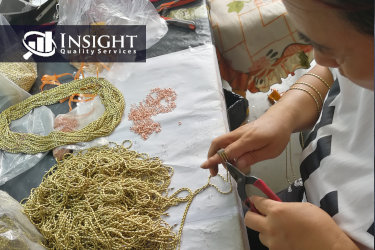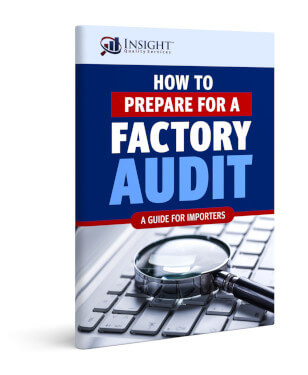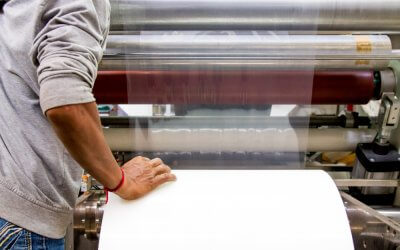If you are importing products from manufacturers in developing countries, you might be thinking about attending a trade fair or trade show to help you find new suppliers.
Trade fairs provide great opportunities for you to meet with dozens of potential suppliers at once, saving you a significant amount of time.
They also give you the opportunity to look at the products different manufacturers are producing to get new ideas for your own products.
Today, we will provide you with some tips to help you get the most out of your trade fair or trade show experience.
We’ll start by talking about planning.
Planning is Key to Trade Show Success
Before you attend a trade fair or trade show, it is important that you have a plan.
That means you need to think carefully about trip logistics, but the first question you need to ask yourself is “Why am I going?”
Is it to find new suppliers? To network? To get new product ideas?
Only with a clear purpose in mind will you be able to come up with a good plan for your trade show visit.
Once you’ve determined your purpose, you should set objectives. For example, if you are looking for suppliers, check out the list of exhibitors in advance and try to identify manufacturers that you might want to talk to.
With this list in hand, you can make it a point to stop by each company’s booth as you walk the trade show.
Decide on how many exhibitors you want to talk to and schedule meetings with other attendees, where needed.
If you’re looking for suppliers, then once you’re at the show, you’ll need to qualify them by asking the right questions.
Questions to Ask When Qualifying Potential Suppliers
Once you’re face to face with a potential supplier, asking the right questions will help you to determine if they are a good fit for you.

Asking the right questions will help you qualify suppliers so you can find the best manufacturing partner for your product.
What kind of questions should you ask?
As a starting point, some good questions might be:
- How long has your company been in business?
- How are you different from your competitors?
- What are your company’s strengths?
- To what extent can you customize a product?
- What kind of products do you have in your product line?
- Do you typically work with buyers of our size?
- What are your MOQs?
- What kind of terms do you offer to your customers?
Develop your list of questions so that you can be as efficient as possible in your discussions and speak with as many of the exhibitors on your list as you can.
Once you’ve done this, you can come up with a shortlist of companies that seem to be a good fit.
The process of getting a quote from these companies will be different, depending on whether you have a custom product or need a standard one.
Pricing for Custom vs. Standard Products
If you are looking to have something custom-made rather than buying off-the-shelf products, it will be tough to get pricing at a trade show.
It is easy for manufacturers to provide quotes for off-the-shelf products because they know the costs involved with producing them.
At the fair, they will be busy talking with many potential customers, so if you have a custom product, exchange contact information and plan to follow up after the show.
Keep in mind that your follow-up will be just as important as everything you do while you’re at the trade fair.
Going through this whole process is quite a bit of work, and sometimes importers struggle with deciding whether they should attend these shows or just let a sourcing agent do everything for them.
Should You Attend Trade Shows Yourself or Just Hire a Sourcing Agent?
You may be wondering if attending a trade show and qualifying suppliers is better or worse than hiring a sourcing agent.

Sourcing agents can help connect you with quality suppliers, but you don’t have to rely on them fully.
It is important to keep in mind that one doesn’t necessarily preclude the other. Both ways have value and you can even do both at the same time.
It all comes down to how much effort you want to put into managing your own supply chain. In fact, even if working with a sourcing agent is the best choice for you, totally relying on them isn’t always a good strategy.
Attending a trade fair can be a great way to get new product ideas and see what is out there.
Even if you’re using an agent, it’s important to have a relationship with your suppliers. Maybe at the show, you can meet your manufacturing contact for the first time.
It is always best to have a direct contact at the factory, regardless of whether your sourcing agent is the primary person managing the relationship. This helps you to minimize your risk as an importer.
Now that we’ve covered quite a bit, let’s recap.
Conclusion:
Attending trade fairs and trade shows can be a good way to find new suppliers or get ideas for your products.
Remember that when attending, it is important to take the time to draw up a plan before you go.
If you’re looking for suppliers, be sure to come up with a list of questions to ask them so that you can have efficient and productive discussions.
Keep in mind that if you have a custom product, you probably won’t be able to get pricing for it at the show, so schedule time to follow up.
Even if you have a sourcing agent, attending a trade fair can be a good opportunity to connect with your current supplier and get ideas for your next product.
If you are planning to work with a new factory and want to learn more about how to assess their capabilities, we recommend downloading the following guide.
Free Guide
How to Prepare for a Factory Audit
A factory audit helps you assess a supplier's systems, capacity, workplace environment, or capabilities to ensure they meet your requirements as a buyer.
But which type of audit should you conduct, and which points should you cover on your checklist? In this free guide, you'll learn how to run an effective supplier assessment.





0 Comments